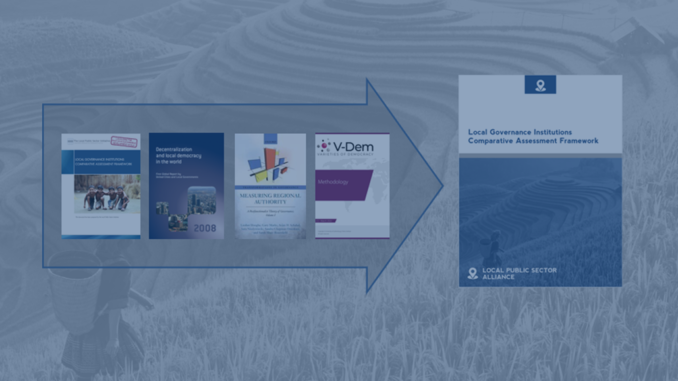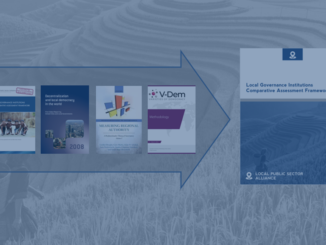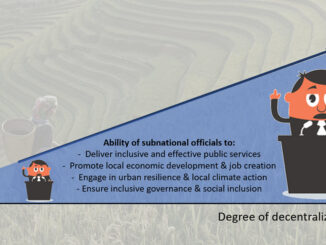
In June 2022, the Local Public Sector announced that it would review and revise the Local Governance Institutions Comparative Assessment (LoGICA) Framework.
Having received extensive feedback from researchers and practitioners alike over the past few months, the revision of the LoGICA Framework is now complete, and the updated framework is now publicly available at http://decentralization.net/resources/logica-framework/.
The LoGICA Framework now consists of three parts: (i) the LoGICA Intergovernmental Context provides an overview of a country’s background, territorial-administrative organization, subnational governance arrangements, and functional assignments; (ii) the LoGICA Country Profile captures detailed information about multilevel governance arrangements at different subnational governance levels/tiers/types in a country; and (iii) the LoGICA Score Card offers a “lighter touch” assessment and allows for a more quantitative assessment of multilevel governance systems in a way that facilitates comparisons across countries. A more detailed description of the different components of the revised LoGICA Framework is available here.
The review, revision, and update of the LoGICA framework intends to ensure that the revised LoGICA framework is up-to-date and provides a suitable framework for informing country-level policy dialogues on decentralization, multilevel governance and intergovernmental relations. The revision also ensures that selected indicators can feed into a global, comparative data set on the state of multilevel governance and subnational governance institutions.
Over the course of the coming year, the Local Public Sector Alliance will work with global, regional and country-level partners—including through the nascent LPSA Expert Working Groups in Africa and Asia—to prepare LoGICA Assessments for countries around the world.
In addition, the framework is available free of charge to development partners, governments, local government associations, researchers, and civil society organizations in order to inform country-level policy dialogues on decentralization, multilevel governance and intergovernmental relations.



